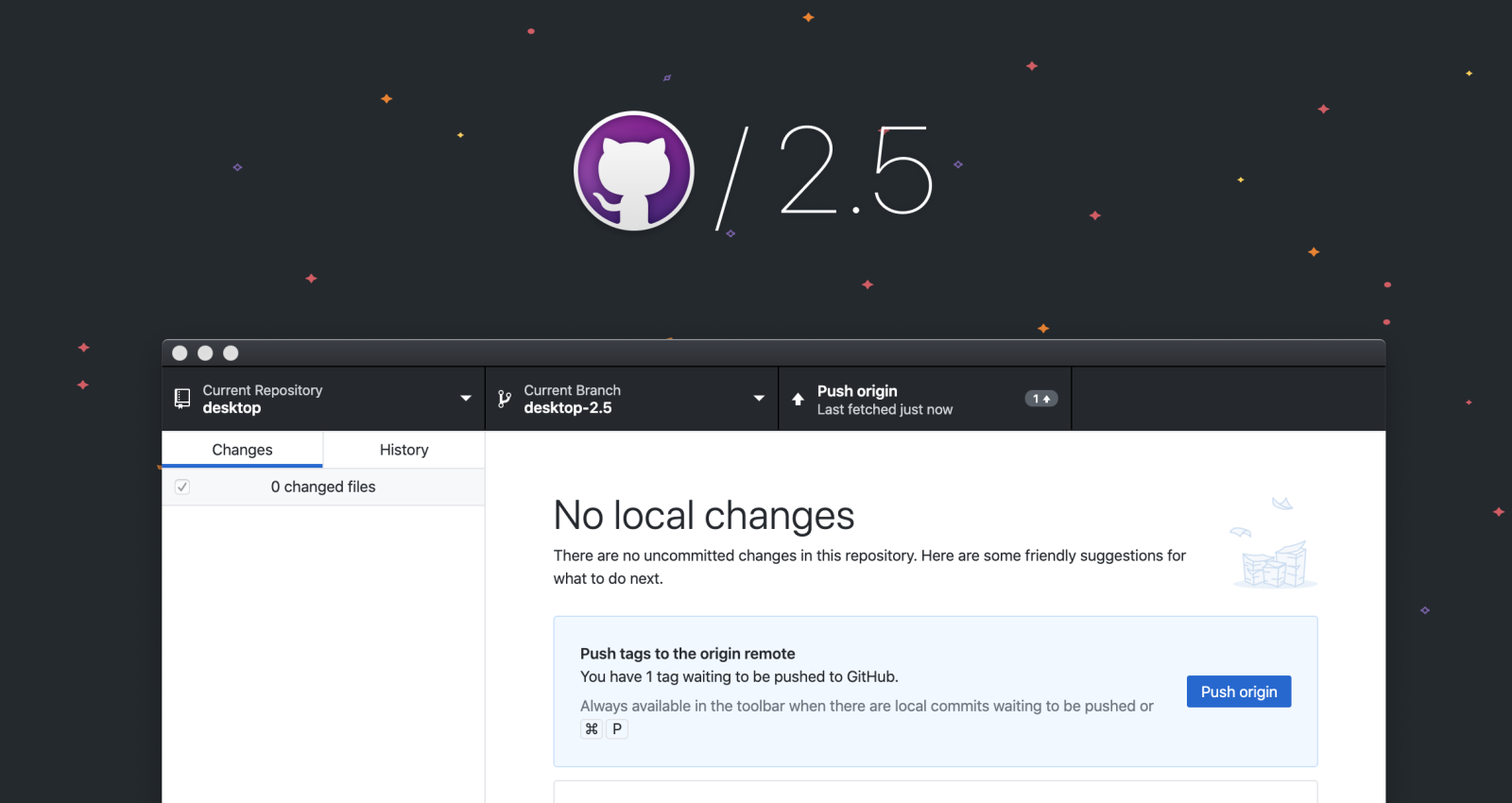Create and push tags in the latest GitHub Desktop 2.5 release
The latest GitHub Desktop release includes the most requested feature of the past six months: tags! Create, push, and view tags directly from GitHub Desktop.

As promised at GitHub Satellite, Git tags are coming to GitHub Desktop! Tags are helpful references that allow you to mark a particular point in your project’s history. They’re most frequently used to specify the commit for a given release or for any significant milestone. As one of the most requested features in the past six months, we’re excited to deliver it.
Tag your commits in GitHub Desktop
With today’s 2.5 release, you can create and view your tags directly from GitHub Desktop. Now when you push to GitHub.com, any tags created in Desktop are automatically included. GitHub Desktop also notifies you when you’ve created tags but haven’t yet pushed them, so you don’t forget to share your latest tag with the rest of the team.

Your feedback helped make this happen
We’ve heard feedback that tagging is one of the few features remaining in your regular workflow that you have to do via the command line. Hopefully this reduces that context-switching so you can complete your full local workflow from GitHub Desktop.
More ways to extend your workflows
If you’re interested in hearing more ways to extend your workflow with GitHub Desktop and other GitHub apps like CLI and Mobile check out Neha Batra’s session “Putting GitHub at your fingertips” at GitHub Satellite.
Learn more about GitHub Desktop
Tags:
Written by
Related posts

GitHub availability report: January 2026
In January, we experienced two incidents that resulted in degraded performance across GitHub services.

Pick your agent: Use Claude and Codex on Agent HQ
Claude by Anthropic and OpenAI Codex are now available in public preview on GitHub and VS Code with a Copilot Pro+ or Copilot Enterprise subscription. Here’s what you need to know and how to get started today.

What the fastest-growing tools reveal about how software is being built
What languages are growing fastest, and why? What about the projects that people are interested in the most? Where are new developers cutting their teeth? Let’s take a look at Octoverse data to find out.